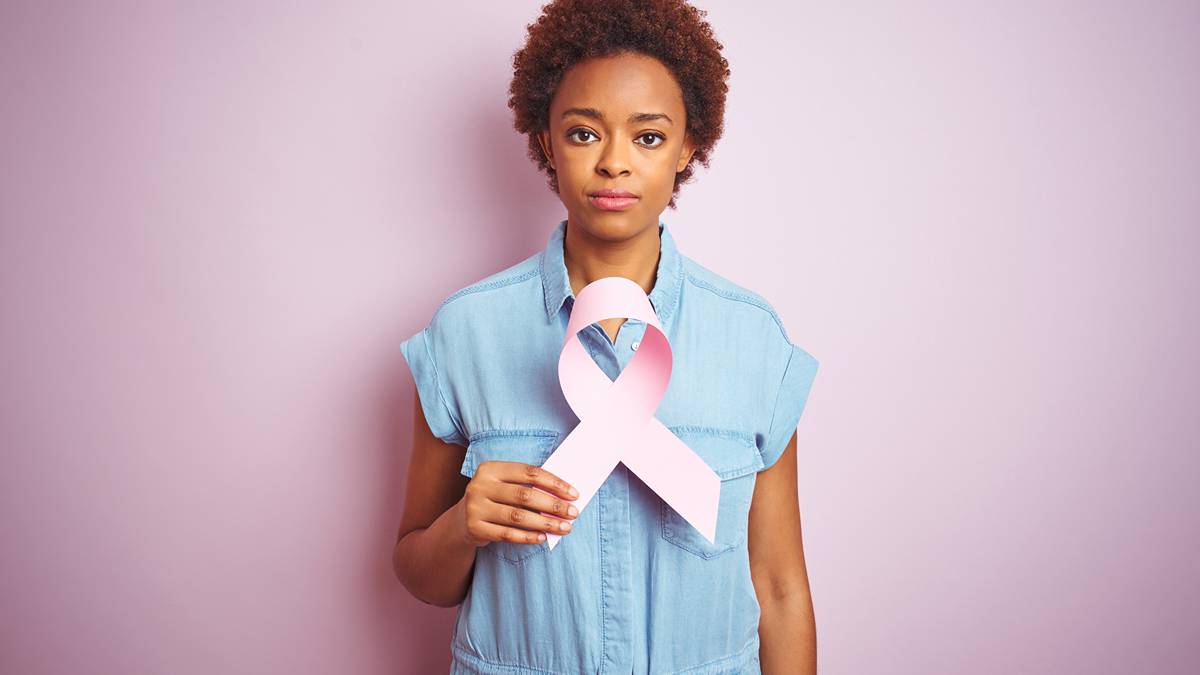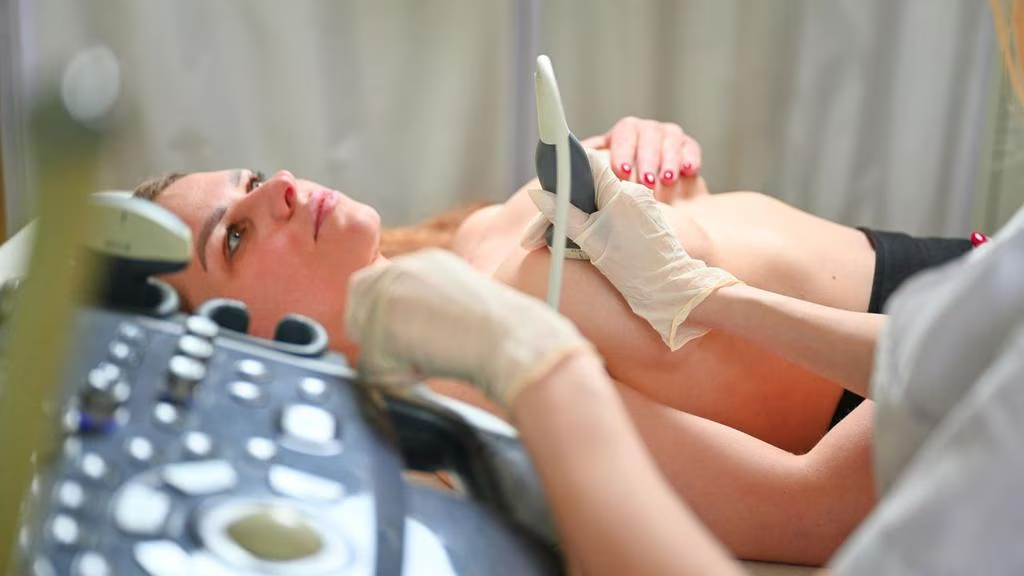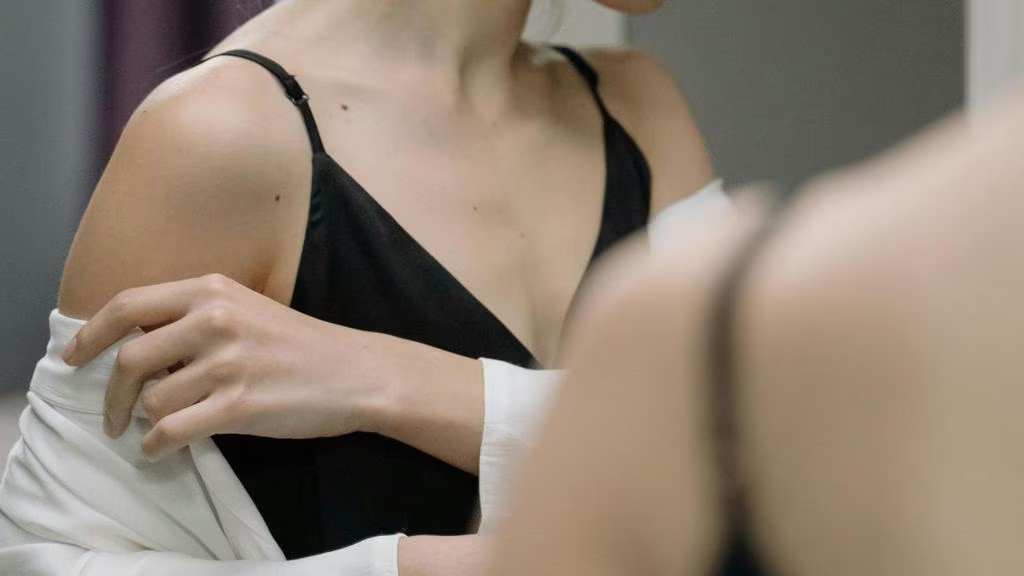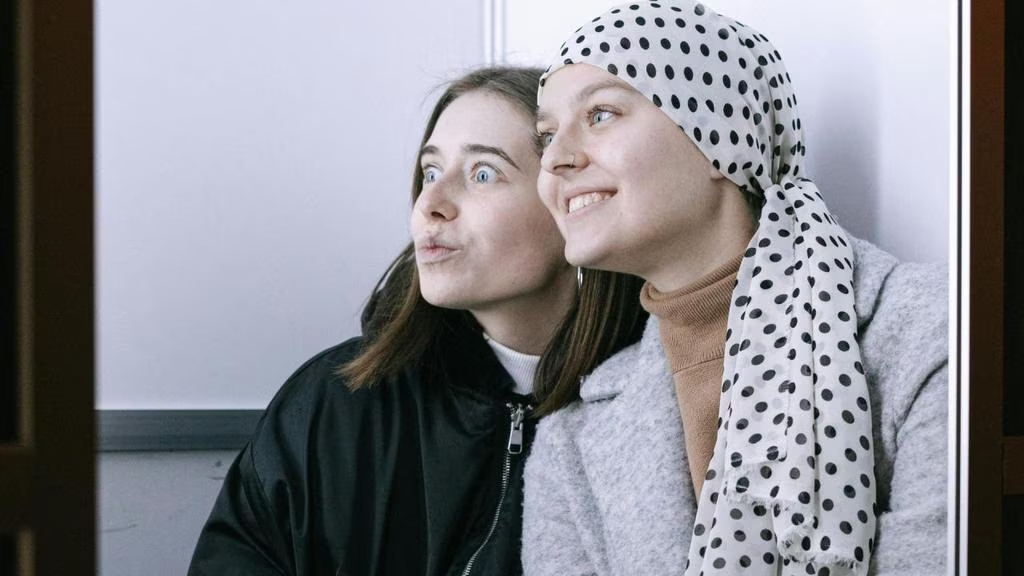Eight things you should never say to someone who has breast cancer

At a loss for words now someone you love has been diagnosed with breast cancer? Here's what not to say. Pic: Getty Images
It’s hard to know what to say when someone you love is diagnosed with breast cancer. But while well-meaning, some comments can hurt more than they help.
This Breast Cancer Awareness Month, breast cancer survivor Dilvin Yasa shares what not to say – and how to show support.
Words by Dilvin Yasa for Body and Soul.com.au

When you’re diagnosed with breast cancer, you tend to hear a lot of things you really wish you hadn’t.
According to some, I should consider myself fortunate that I get to choose my ‘dream boobs’, for example, or that I got ‘one of the good cancers’.
When it comes to the worst things I’ve heard since my breast cancer diagnosis earlier this year, my GP’s frank discussion about the results of my core needle biopsy still tops the list – but the following aren’t too far behind.
If you have a loved one going through something similar – take it from me – here’s what not to say:
#1. “Let me know if there’s anything I can do to help”
Let’s be clear, someone with cancer is never going to get upset about this particular sentence, but it does put the onus on them to find a solution to your ‘help me help you’ offer.
Not only are they already too overwhelmed to think straight, but they probably feel uncomfortable asking for meals, cleaning services or babysitting outright.
What you should say instead: “I’ll be dropping off meals every Monday and Thursday for the next month. Do you have any dietaries I should be aware of?”
Be specific with what you’re willing to do, when you’ll be doing it (dates and times), and make it clear you won’t be taking no for an answer.

#2. “You’re so lucky you get to choose new boobs”
It’s human nature to search for silver linings, but telling someone they’re ‘lucky’ to be having a body part amputated and replaced with bagfuls of fluid is as offensive as it is inappropriate.
It’s helpful to remember that in cases of reconstruction after mastectomy, this isn’t a voluntary augmentation but a traumatic surgery necessary to preserve life. It isn’t a ‘boob job’.
What you should say instead: “I’m sorry this is happening to you. Do you want to talk about it?”
She may want to talk about the grief related to losing her breasts and share her thoughts on the reconstruction, or she may not. Just follow her lead.
#3. “I’ve got Aunt Margaret on the other line”
Here’s the thing about breast cancer: Everyone’s experience of it – whether it be their physiology, headspace, or even the support network they have in place – is different.
Hearing about Aunt Margaret’s heroic battle and how ‘she’s fine now’ does little to make us feel better, often serving to minimise our own experience.
It’s even worse if you tell us about someone who ultimately died of breast cancer (please don’t do that).
What you should say instead: “Would you find it helpful to talk to someone who’s had a double mastectomy herself? If so, my Aunt Margaret would be happy for you to call her.”
Reframing it gives us a choice as to whether we want to hear about someone else’s experience or not, and it counts for an awful lot.

#4. “Oh God, and here I am complaining to you about something trivial”
You’re desperate to tell your friend about your horrible day, toxic workplace or eye-watering tax bill, but as soon as you start complaining, you remember that she’s battling cancer and anything you bring to the table seems trivial by comparison.
What you should say instead: “Oh my God, you’ll never believe what happened to me…”
Here’s the thing: Your friend hasn’t magically become someone else and she’s probably desperate to talk about anything other than the one thing she’s always talking and thinking about. Go hard.
#5. “You’re so brave”
Nope, we really didn’t have a choice in the matter.
What you should say instead: “This is so s**t.” There’s no need to sugarcoat the situation and we’ll appreciate your honesty if you just go ahead and call a spade a spade.
In fact, it’s a good idea to steer clear of any kind of ‘you’re amazing’, ‘you’re badass’ and ‘you’ve got this’ cheerleading from the sidelines.
Let her tell you how she’s feeling without you jumping in to label everything first.

#6. “I read this thing about…”
It’s natural to want to help your friend or family member, but sending her unsolicited emails or texts about how microwaves or preservatives or negative thinking is linked to breast cancer – or better yet, blog entries on ‘natural ways to beat breast cancer’ – is not helpful.
You have to remember that we’re working with a team of medical professionals and many of us are spending sunset to sunrise doing our own research – usually after midnight when we should be sleeping.
What you should stay instead: Found a groundbreaking, peer-reviewed study in the likes of Lancet or The New England Journal of Medicine? The perfect opener here is: “I’ve been reading the latest on early physical intervention after mastectomy. Would you like me to send it to you, or come back to you at another time?”
Found some thoughts Jessie-Anne from Ohio wrote in her ‘Cancer-free in just 90 days’ blog? Pretend you never saw it.
#7. “Have you considered turning to God?”
Look, this may work in cases where your friend or family member is already a believer of sorts, but believe me, if you’re throwing patronising faith talk at someone who identifies as atheist or agnostic, you’re likely to get a rage-filled response – and doubly so if you utter the words, “Everything happens for a reason’.
What you should say instead: “Would you like a hug?” Because nothing beats human connection (and a warm embrace from a loved one).

#8. “No, you had cancer”
It’s common for those of us who are either battling breast cancer or recently recovered from it to have people try to minimise or casually dismiss the trauma and pain of our experience.
Don’t correct us by saying, “No, you had early stage cancer,” or “You had cancer, you’re free of it now”.
These words don’t help anyone – not your friend and certainly not your friendship.
What you should say instead: Absolutely nothing. Just listen and be there for them.
This article originally appeared on BodyandSoul.com.au as 8 things you should never say to someone who has breast cancer.
Related Topics

UNLOCK INSIGHTS
Discover the untold stories of emerging ASX stocks.
Daily news and expert analysis, it's free to subscribe.
By proceeding, you confirm you understand that we handle personal information in accordance with our Privacy Policy.








